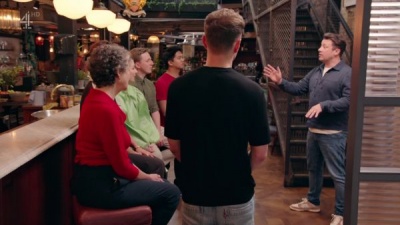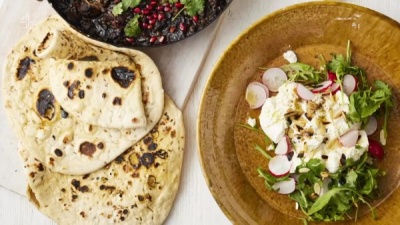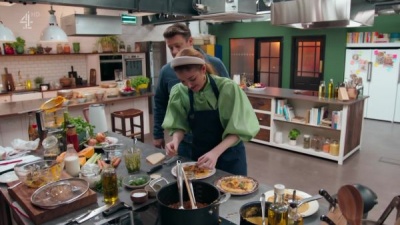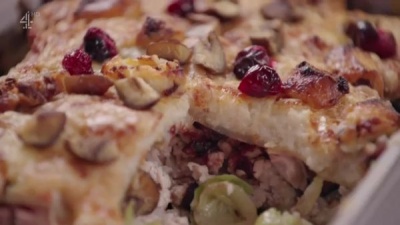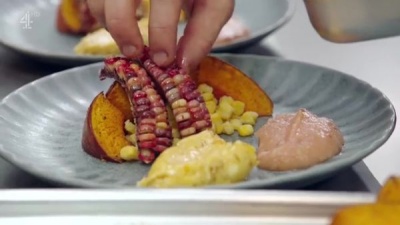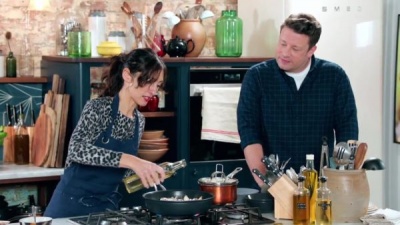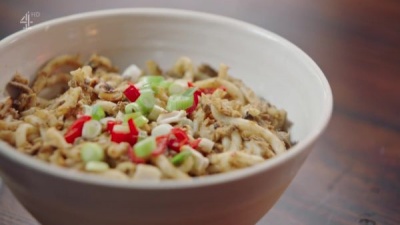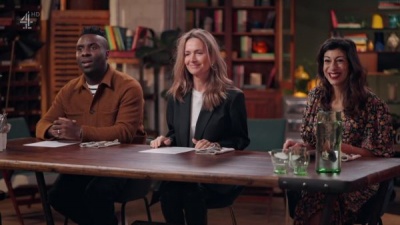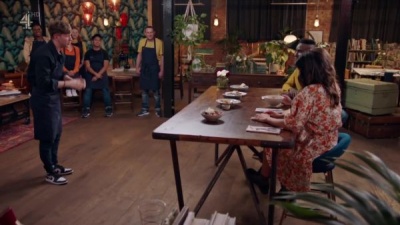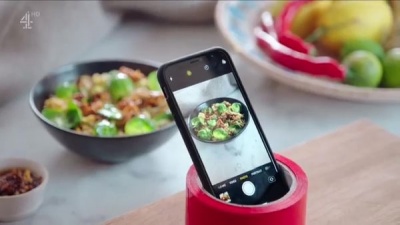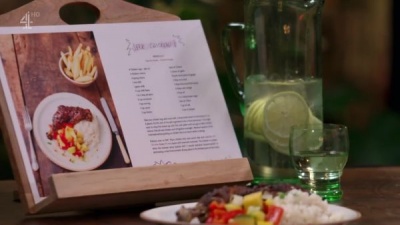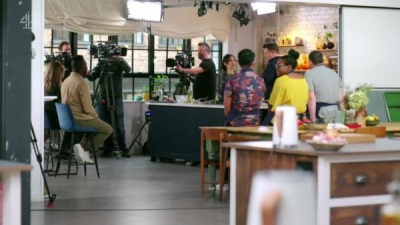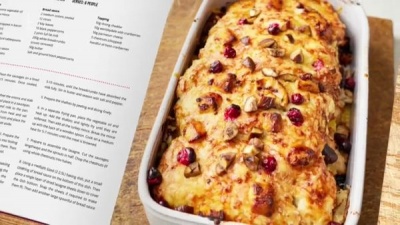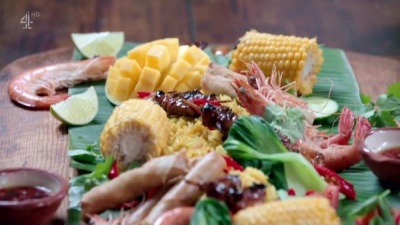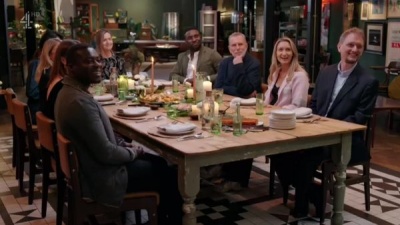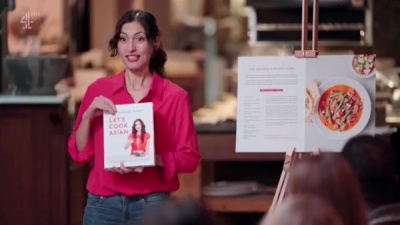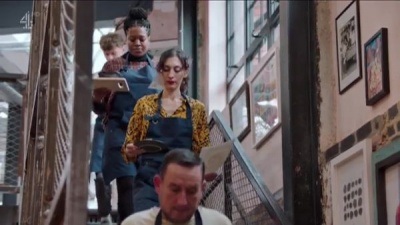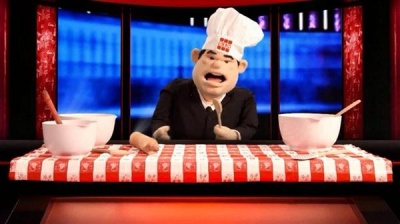Weaver's Week 2022-03-20
(Created page with 'Last week | Weaver's Week Index | Next week When we read the press release announcing this show, we t…') |
m (→In other news) |
||
| Line 195: | Line 195: | ||
== In other news == | == In other news == | ||
| - | Remember '''Brandon Blackwell''' from [[University Challenge]] a couple of years back? Powered Imperial College to the title? He's gone up in the world, by about 4 metres, and will join ''The Chase'' when it returns on ABC (Disney) in May. Victoria Groce also joins the Chasers' ranks, hers is a name that crops up on every edition of [http://www.youtube.com/allthingsquiz All Things Quiz] Quizzy Mondays'', so she must be quality. Buzzy Cohen is another new Chaser, he won ''Jeopardy!'' Tournament of Champions in 2017. | + | Remember '''Brandon Blackwell''' from [[University Challenge]] a couple of years back? Powered Imperial College to the title? He's gone up in the world, by about 4 metres, and will join ''The Chase'' when it returns on ABC (Disney) in May. Victoria Groce also joins the Chasers' ranks, hers is a name that crops up on every edition of [http://www.youtube.com/allthingsquiz All Things Quiz] ''Quizzy Mondays'', so she must be quality. Buzzy Cohen is another new Chaser, he won ''Jeopardy!'' Tournament of Champions in 2017. |
To make room, Ken Jennings hasn't come back (everyone wonders: is he going full-time to ''Jeopardy!''?) and Mark Labbett has left to spend more time with his doughnut collection. | To make room, Ken Jennings hasn't come back (everyone wonders: is he going full-time to ''Jeopardy!''?) and Mark Labbett has left to spend more time with his doughnut collection. | ||
Current revision as of 11:42, 20 March 2022
Last week | Weaver's Week Index | Next week
When we read the press release announcing this show, we thought, "This is going to be fascinating!" It was, though not for the reasons the producers might have intended.
Contents |
The Great Cookbook Challenge with Jamie Oliver
Plum Pictures and Jamie Oliver Productions for Channel 4, 31 January – 14 March
The basic idea: one chef is going to publish their own cookery book. You know the sort: big and glossy, with lots of photographs. The sort of book to entice people to do their own cooking. And it's going to be launched with a seven-hour advertising campaign on Channel 4.
The heats
The cook makes one dish from their book, representing the sort of cuisine they're proposing. The food is professionally photographed and made to look good. It's then eaten by the panel, who interrogate the cook about their book, what sort of food it's about. We reckon they've had copies of the recipe – mockups are shown for us on screen – but this is never made clear on screen.
Feels like a lot of the discussion is chopped: either that, or there's an assiduous screening process before the cameras start to film. We quickly got the impression that the panel knew roughly what they wanted, might have selected the contenders they'd like and added in some less-hopers before we joined the process. (Less-hopers? Not quite no-hopers, but near enough.)
Six contestants in a one-hour show is about right: the pace is kept up, everyone gets their six minutes of fame, and the show doesn't have so many people that we get confused. It helps that the judges are only shown at their table, they don't poke their nose into the kitchen. And it helps that we only have two chefs cooking at any time.
The publishing house gets one verbal and one visual reference per show: anything more could be construed as undue prominence.
The publishing house basically has a veto over the final book. The first contestant we saw wanted to promote bread as an integral part of every meal. This isn't a fashionable position, the trendy diets prefer protein and/or fat. Publishers don't like to push against the received style, it's hard work and makes their life more difficult. Goodness, the publisher might actually have to work for their percentage! And that would never do!
Later in the same show, another contestant proposed "The Green Greek": cuisine inspired from the Mediterranean, without using meat. The contestant made a risotto, a dish more commonly associated with Italy. This confused the publisher, who has to work with the general public, and doesn't like to educate them. Greece? Italy? Are they the same? Goodness, the publisher might actually have to work for their percentage! And that would never do!
In that first show, three books came across as genuine contenders. "The ex-vegetarian" promoted a considered, mindful approach to eating meat. Not ruling it out, but not reaching for flesh at every meal. Another book promoted quick and easy vegan recipes; it was pushed by a social media star, the sort of person who could probably organise a crowd-funder from his fanbase. And there was a book on Filipino cuisine, which hasn't been explored in the west.
Later in the series, the panel was surprised by a book making lasagne: the chef sold it well, serving a complete Christmas dinner between the pasta sheets. A cheese fan was sent out on his ear, because cheese isn't fashionable. Someone offering dishes with a nebulous "twist" was put through, even though she didn't demonstrate the twist.
Another suggested a book about misos and fermented food for teenagers; the panel thought miso is far too complex for teenagers. This says a lot about the panel, and their patronising prejudices and how they're completely out of touch with the modern teenager. We encourage the panel to go off, watch Junior Bake Off and Best Young Artist, and ponder on why they're both wrong and kind of offensive.
This isn't a show seeking a great cookbook, but it is looking for a big-selling cookbook. What's the difference? A great cookbook will record a cuisine: the recipes, the ambience, how the recipes might be changed and varied. It'll instruct and inspire in equal measure. Many great cookbooks sell in small numbers, to expert chefs. That's clearly not what they're after here: one applicant on this show was rejected for being "too cheffy", another for being too vague in his instruction. It's not mass market enough. A big-selling cookbook will fly off the shelves, quite often because it's had seven hours of promotion on primetime Channel 4. The publishers are after something they can market to the mass audience, accessible, fashionable, easy to shelve by the boxful.
Jamie Oliver gets his name in the show's title, but his role is nebulous. He's not the host – Liza Tarbuck does the voiceover, and is the only one to talk to the viewers. In the kitchen, he's a sous chef, helps the amateur cook, and he asks questions to help explain the guest to the viewers – and he does this brilliantly, a masterclass in genial interviewing they can use all across Channel 4. He brings the food downstairs to the judges, then literally steps back. While he flits around and encourages, like a cheerful moth, he does nothing hugely substantial. If you're watching this show for Jamie Oliver, you're a bit disappointed in every single episode.
And disappointment is the name of the game for cookbook writers. Only about 10% of cookbooks shift more than 500 copies; only 1% break 5000 sales. If your book is given seven hours of promotion on primetime Channel 4, you are certain to be amongst the 1%. You are the exception, not the rule. Mess this up, and you will not get a second chance.
Precisely two go through from each heat. It's balanced within each show, though we got the impression that not all of the best six books went through, because three of the best ideas were in one show.
Elimination
Once the final six books had been identified, they were set further tasks. The television show concentrated almost entirely on the author's skill as a cook and the way they'd present their ideas. The dishes were examples of the book. Quite the nebulous piece of handwaving.
The show's middle-class assumptions showed through the challenges: a "quick" meal for a weekday, and a longer meal for a weekend. It's clear that the people who buy cookbooks are assumed to have steady jobs, working regular office hours. No late-night shifts and no weekend work for this publisher.
Another middle-class assumption: that every cook has access to "store cupboard ingredients". This concept appears to have bubbled up from nowhere over the past decade, and depends on who defines it. BBC Good Food has a list of 50 items: that's not a store cupboard, it's a proper corner shop! Jack Monroe, who knows how to shop on a budget, names the top ten: rice, chopped tomatoes, dark chocolate, cheap beer, woody and fresh herbs, oil, baked beans, kidney beans, flour, and frozen veg.
The judges passed their thoughts on the dishes. Careful editing ensured that they were consistent within the episode, though perhaps not so consistent when compared with the heats. Were the panel being swayed by quality food, or by the quality of the recipe? Don't know, we could ask the question and get no coherent answer.
From time to time, the judges imposed their own prejudices and preferences on the contestants. One made dan dan noodles, with hot pepper and chilli oil. "It should be a little bit sloppy," said Georgina Hayden, the established recipe writer on the panel. Jimi Favuwere, the restaurant critic, thought there was too much meat substitute. We're not convinced that either statement is as definitive as it came across on screen: the key element is the hot flavour within the dish. Dan dan noodles can be served almost like a soup, or as a snack while crisp and hot, or somewhere in between. We're certain that their quality won't have been helped as the judging panel let the food sit on the table for ten minutes, while critiquing at least one other dish. The cook looked set to argue these points with the critics, but ham-fisted editing ensured this was a one-way lecture.
We're seriously unimpressed. Sure, chopping out the argument keeps the show running to time. Preserves the panel's veneer of infallibility and knowledge, but at the cost of their credibility. We get the impression that the judges are winging it just as much as the contestants. If the cooks are feeling Imposter Syndrome, then the judges might be showing the Dunning-Kruger effect. Neither side can assess their own abilities.
Louise Moore, the representative from publishers Penguin, comes across as a deeply conservative character. The business of publishing is deeply conservative: they are capitalists, they don't want to lose money, and won't go too far beyond the established mainstream. By now, it was clear that she'd pigeon-holed one contender as a gimmick, another as not showing her core idea, still another as not yet having a core idea, and seemed to undermine the central plank of another's book. The "twenty minute" vegan dishes didn't work with the show's format – where contenders had two hours to cook – so Louise encouraged that contender to drop the time limit. At the earliest possible moment, she dropped that contender, the ground had been cut from beneath him.
Was it fair to expect the contestants to showcase very distinct recipes from their books? Perhaps: if all you can cook is pork, or meat in general, you might end up limiting your market. But surely that turns the competition from a recipe book into a contest of cooking; a moderately talented cookbook writer might not be able to complete the technical tasks so well, but can describe how it's done.
Was it fair to tell the contestants after they'd cooked that they were expected to showcase very distinct recipes? No. Louise gave that critique twice, enough for us to conclude it's not an accident; and with so little grace that we took it as a direct rebuke to the contenders. She reminds us of someone we don't like.
Later eliminations
The second elimination show concentrated on the photographs, hoping to sell the dishes. According to the publisher, people still flick through cookery books in a bookshop before buying it, and decide whether to buy it based on the pictures. Every element of this statement can be challenged: do people flick through books, and risk catching a deadly disease? Do they still visit bookshops, and risk catching a deadly disease? Are pictures still relevant, and not (say) price, or whether the book has had a seven-hour marketing campaign on Channel 4?
But no! The publishers know best, they can point to all sorts of facts conjured from various parts of their body, and pictures it is. And if you're a food blogger who is expected to be good at this, and don't produce the high-quality results the panel expects, you're toast. Especially if they've spent the last two episodes rubbishing your specific point of difference.
"You eat with your eyes!" exclaimed one judge during this episode. Perhaps that explains where they're going wrong: this column tends to eat with our mouth, digestive system, and a bit of nose. Food does not, as a rule, enter our body through our eyes.
With four to go, we finally get to see a bit of the book. Just two pages: a recipe, and a photo of a dish. Apparently, people will pick up the book and be impressed by these spreads of spreads. And again, the show reveals how it makes assumptions. Do cookery book buyers still go to bookshops? They did in 2019, perhaps, but how have the last few years changed everything? The panel keep banging on about how half the book needs to be dishes without meat, showing they're aware of some fashions. Are they choosing to ignore other modish ideas, those inconvenient to them?
The penultimate episode also set a very televisual challenge. Literally, appear on television for fifteen minutes, make something on "live" television. Cook and chat at the same time, like some sort of Alan Partridge at a stove. "It's essential for the author to work on television," protested Jamie and the judges. Really? Most cookery books sell in tens or hundreds. Not all have a big-name imprint behind them. Very few are launched with seven hours on primetime Channel 4. This isn't typical of cookery books, and has very little to do with selling the book itself – it's promoting the brand, the new chef in the incestuous world of telly cookery. If there were any doubt, this removed it. The Great Cookbook Challenge was all about presentation, and not about content.
Throughout the series, the judges had made it clear who they liked, and who they couldn't get along with. One contender had made her idea very clear from the outset: cooking "with a twist". Present a classic recipe, and then a version with a twist. This column understood it from the first dish. But the publisher didn't get it, and we wonder if she chose not to get it.
"With a twist" is a difficult concept to sell, it does require a little bit of thought, or to listen to the explanation. We would understand if the publisher had rejected the book because it's less straightforward than the others. But no, the publisher came across as wilfully ignorant. The most charitable explanation we have: the contestant explained very well to camera, and helpful editing made her points for us at home. Whatever the reason, that contestant's time in the contest came to an end, without a twist.
Who wins?
So, when you buy a new recipe book, you're going to want to try the recipes, right? And you'll need them to be clear and easy to follow. That's the publisher's job: they're meant to be the expert in turning notes and scratchings into a coherent manuscript. At this stage, the books aren't books, merely a collection of ideas and notes.
The tests we saw on tv didn't simulate the real world. They could have given some of the recipes to amateur cooks, and see if they could replicate the dishes. Has the author captured all the important information; is there a vital step or a trick they have missed out? They could have done this, but they didn't. And we wonder: did they omit this test because they can't assess it fairly? Or did they skip it because it wouldn't make good television? Or did they skip it because it didn't give the results they wanted?
Or did they skip it because that's not what a good cookbook will do? There is an argument that a cookbook is a selection of tried and tested combinations to produce tasty results. For adventurous cooks, the book is a starting point to branch off and make experiments of their own; for less ambitions chefs, they're scripts that Just Work. Many Black cultures don't have a tradition of cookery books, or even writing down recipes: they're passed on by word of mouth, mother to daughter, neighbour to neighbour.
Only one of the final four books was in the tradition of white people's culture: it was about making tasty food on the cheap. Manuscripts on Philippine food, and on Asian food in general, are from non-white cultures. And the "with a twist" idea is exactly right for the more adventurous cook. It would give one dish that works, and another similar dish that works, and the author points out the difference between the two. It encourages more adventurous cooking, gives people confidence that their experiments are likely to work. Perhaps the publisher saw this and figured she'd sell fewer copies of future books; perhaps the publisher simply didn't get the idea, or considered it more difficult than the others to sell.
The final episode covered the last two aspects of a successful cookbook: the cover, and the party for industry tastemakers. And that summed up the series brilliantly: never mind what's between the covers, it's "buzz" and "vibe" and fashion that sells books. They're right, cookery books sell because they've got a celebrity on the cover, or the brand's been built online. It's rare for an industry to expose its own myths so clearly as The Great Cookbook Challenge has exposed publishing's doublespeak. As we often say, game shows hold up a mirror to society.
Who won? The most middle-of-the-road candidate. In week two, we'd thought that there was one great idea, two that could never work, and three with no real differentiation. One book had to go through, and its author survived to the final. Even watching the series back, we're mystified by this decision. Perhaps the publisher realised that a seven-week advert on national television would turn anything into a best-seller, and has let the stronger books find their own place on the market.
The series ended with the winner being named. Can we go out and buy Dominique Woolf's book? Er, no. In a spectacular piece of marketing, the book won't be available until June.
So we get a seven-week promotional campaign on primetime Channel 4, we see the winner in a blaze of publicity, and we want to rush out to their bookshop to buy the book. Only to be told that it's not out yet, and won't be out for another 12 weeks. By which time fashion has moved on, and the new hit book is 83 Great Ways to Make Bread Lasagne With Just a Little Meat.
Watch more
All episodes via Channel 4 (.uk only, free registration)
We've found very little that's legally available overseas. Here's an interview with Rex de Guzman, one of the finalists. And, er, that's it.
Soup to nuts
Ultimately, this was a television show about how they make a cookery book. The actual contents of the book is about fifth on the list of priorities, beneath the look and feel and promotion and appearance. We said that it was going to be an intriguing watch, and it amply rewarded our curiosity.
Our final takeaway, though, is negative. It's that the cookbook industry is a confection, built on lazy assumptions and reducing a complex society to easy pigeonholes. By exposing the quality of thought behind the curtain, they might just bring down the whole kingdom of Oz.
In other news
Remember Brandon Blackwell from University Challenge a couple of years back? Powered Imperial College to the title? He's gone up in the world, by about 4 metres, and will join The Chase when it returns on ABC (Disney) in May. Victoria Groce also joins the Chasers' ranks, hers is a name that crops up on every edition of All Things Quiz Quizzy Mondays, so she must be quality. Buzzy Cohen is another new Chaser, he won Jeopardy! Tournament of Champions in 2017.
To make room, Ken Jennings hasn't come back (everyone wonders: is he going full-time to Jeopardy!?) and Mark Labbett has left to spend more time with his doughnut collection.
Meanwhile, we hear that Issa Schultz from The Chase Down Under is going to appear on ITV's new series of Beat the Chasers. Who can't make the recording? Has Shaun Wallace found one of his paperclips slightly out of shape? Has Mark Labbett found a hole in his doughnut collection? Oh, Anne Hegerty's gone down with the lurgy. Sorry to hear that: we've sent frozen chicken soup to young Frostykecks.
And we idly wonder if the time is right for an International Master Chase tournament. Someone from the ITV panel, someone from ABC (Disney), someone from Channel Seven down under, the smartiepants from RTL Nederlands' Beat the Champions, and whoever's best at anglophone quizzing from ARD's Gefragt – Gejagt.
ABC (Disney) also tell us that Holey Moley, the high-stakes crazy golf programme, is coming back. It'll feature some of The Muppets, for obvious reasons. Everything with the Muppets is much funnier than anything without them; it's a shame none of Jamie Oliver's contestants came up with anything as quality as Swedish Chef's cookbook.
Some changes on Lightning, as the contestants are allowed to change clothes between episodes. They've also removed the physical challenge, and replaced it with a "complete the statement" round. There's still a wide variety of questions, sprinkling in unlikely quiz topics like Ikea furniture and Nikki de Jaeger. Speaking of amazing people, congratulations to Col, the contestant went for the jackpot on Tuesday's show, and scooped the full £3000 prize.
Quizzy Mondays Mastermind was won by Eleanor Ayres, taking York Minster as her specialist. A stupendous general knowledge round – 17 points! – overturned a deficit at the halfway stage. University Challenge went to Reading by 145-70, some profligate buzzing from Reading isn't something they can afford to repeat in the semi.
Our friends at All Things Quiz discussed a bonus set about basic differentiation, a topic in mathematics. It's briefly covered for some top-level GCSE students, it's the heart of A-level and AS-level maths, and it's included in Physics and similar degrees. Absolutely right that it's included in the show...
...but again we bump against the limits of the University Challenge show as it's currently presented. Here's the question:
- Q: In each case, evaluate the derivative of the given function with respect to x of the value specified. So, firstly, the function x cubed + x squared at x = 3.
Contenders are asked to do the differentiation, and remember arbitrary values, and all without the assistance of pen and paper. And, let's be honest, Jeremy Paxman's delivery of these questions wasn't clear enough. Slow and chuntering, emphasis in unusual places. The result wasn't affected by the host's shortcomings, which is a mercy.
One possible solution: more picture questions. We've noted how there aren't enough audio rounds, and questions like this would be so much clearer when shown as pictures. They don't have to emulate Top Class or Brightest Family by having pictures on every single question, but more pics and more audio would be useful.
It must be ten weeks since we last had some Bake Off or Masterchef, so let's have new series of both. Celebrity Bake Off (C4, Tue) and Masterchef (BBC1, Wed and Fri). Great Local Menu continues (BBC2, Tue-Thu), which feels like quite enough cookery on telly for one week.
Quizzes for all: a new series of Celebrity Juice (ITV2, Thu) and the final of Counterpoint (Radio 4, Mon). There's a Saturday outing for Bridge of Lies (BBC1) as Final Score takes a week off. Phil Tufnell on Stephen Mulhern's Celebrity Catchphrase (ITV), Anne Diamond on Celebrity Mastermind (BBC1), Michael Bublé on Saturday Night Takeaway (ITV), and the last heat of Starstruck (ITV).
We intend to review Starstruck next week. And watch out: next Sunday is a) shorter as the clocks go forward and we lose an hour's sleep, and b) Mothering Sunday for those who mark it.
Pictures: Plum Pictures and Jamie Oliver Productions, GSN.
To have Weaver's Week emailed to you on publication day, receive our exclusive TV roundup of the game shows in the week ahead, and chat to other ukgameshows.com readers, sign up to our Google Group.


